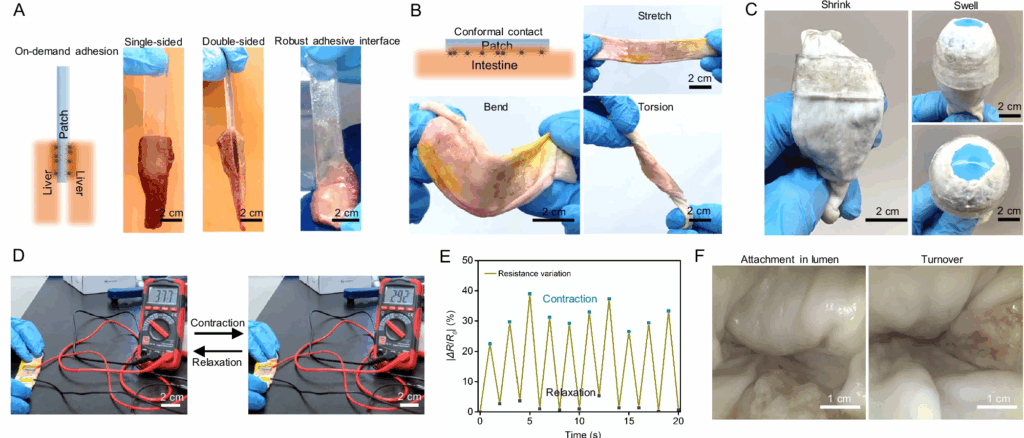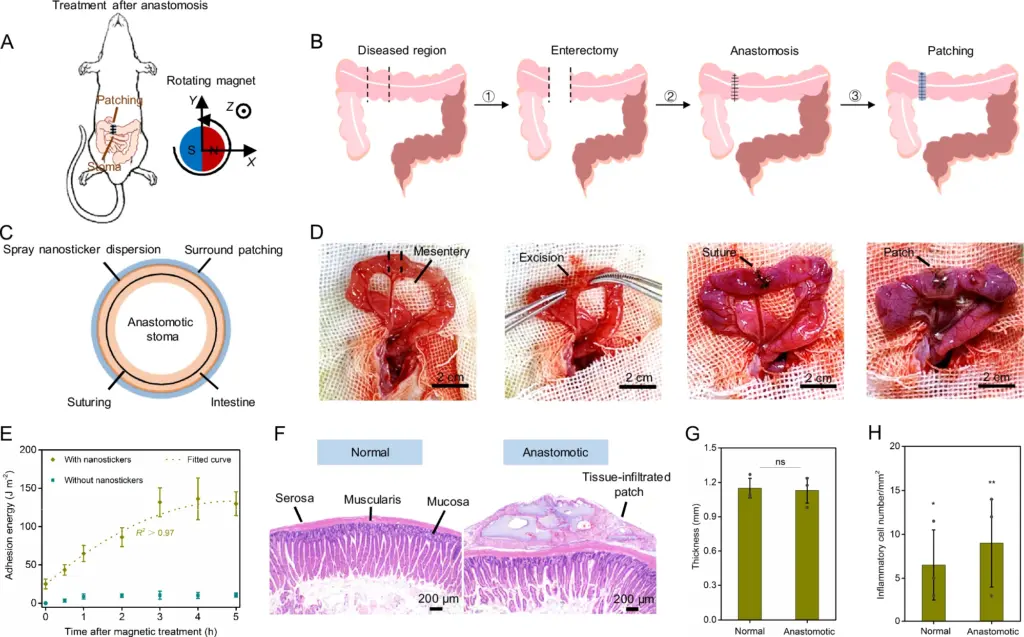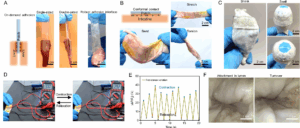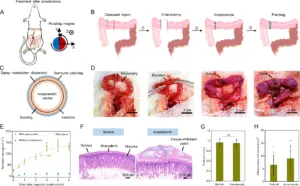CUHK
News Centre
CUHK develops magnetic bioadhesion technology to enhance precision in surgical treatments
A research team led by Professor Zhang Li from the Department of Mechanical and Automation Engineering at The Chinese University of Hong Kong (CUHK) has developed a novel magnetic control bioadhesion technology. It precisely controls the adhesion strength between medical materials and biological tissues through an external magnetic field, showing promising applications in postoperative care following surgical procedures. The research findings have been published in the internationally renowned journal Nature Communications.
Innovative magnetic nanostickers: precisely tuning adhesion strength
In surgical procedures, precisely tuning the adhesion strength of medical materials on biological tissue surfaces can significantly promote wound healing. To address this challenge, the team led by Professor Zhang Li and Dr Hou Changshun from CUHK’s Department of Mechanical and Automation Engineering developed a method using an external rotating magnetic field to remotely manipulate an anchoring agent across both temporal and spatial scales, precisely controlling its adhesion strength on biological tissues. By precisely setting the dosage and magnetic field parameters, this technology enables intelligent manipulation of magnetic nanostickers to anchor them on various biological tissues, significantly enhancing and precisely controlling bioadhesion performance.
Compared with other bioadhesion strategies, magnetic control bioadhesion technology stands out due to its ability to anchor magnetic nanostickers at temporal and spatial scales via a remote magnetic field. This is particularly suitable for fragile areas, such as diseased regions and deep tissues, providing a new reference direction for intelligent bioadhesion technology.
Combining tradition with intelligence: advancing safe and precise treatments
Professor Zhang explained: “This precisely controlled bioadhesion technology is suitable for surgical treatment of biological tissues. For instance, during intestinal surgery, precisely controlled bonding strength prevents medical materials from exerting excessive pressure on the intestine, avoiding intestinal stenosis. Meanwhile, the medical materials can adhere effectively to the diseased regions for protection, reducing the risk of complications such as tissue adhesion.”
Dr Hou added: “The technology combines the advantages of traditional medical materials with the characteristics of magnetic fields. Through an external magnetic field, conventional medical materials are endowed with intelligence and driving force, enabling us to precisely control their adhesion properties on biological tissue surfaces.”
This research was supported by CUHK, the Research Grants Council, the Multi-Scale Medical Robotics Center under InnoHK, the CUHK-SIAT Joint Research Laboratory of Robotics and Intelligent Systems, and the Li Ka Shing Institute of Health Sciences.
The full research article can be accessed here:
Nature Communications: https://www.nature.com/articles/s41467-025-61719-9

A research team led by Professor Zhang Li from the Department of Mechanical and Automation Engineering at CUHK has developed a novel, magnetically controlled adhesion technology, which enables on-demand tuning of material adhesion properties on biological tissue surfaces, making it suitable for postoperative care following surgical procedures.








